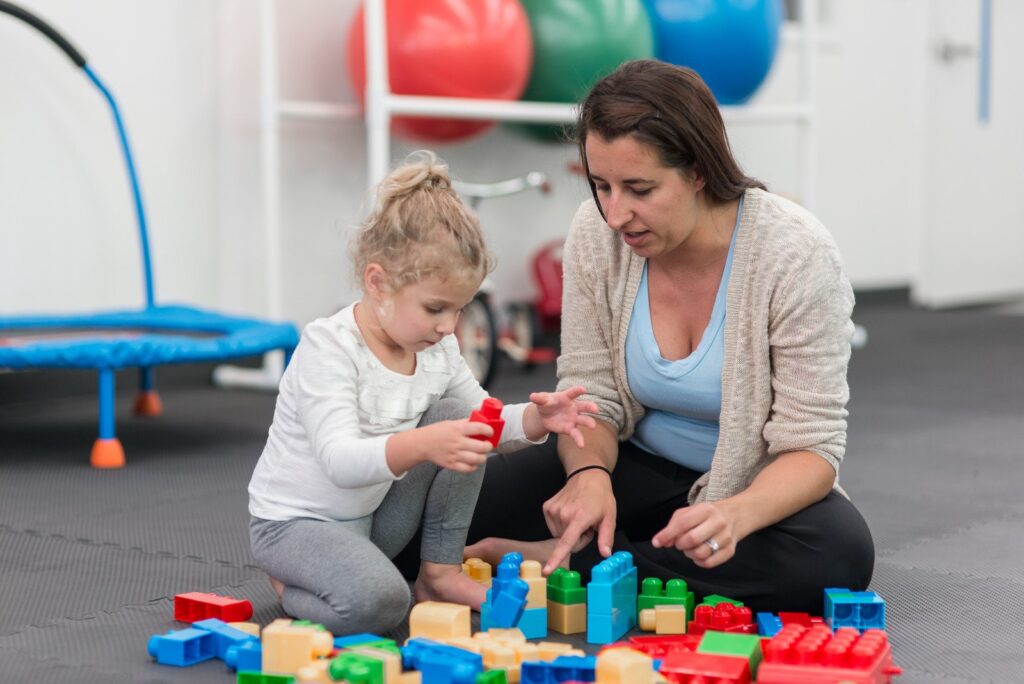Introduction
Independence is a vital aspect of a fulfilling life, enabling individuals to participate fully in their personal, social, and professional spheres. For those facing physical, cognitive, or emotional challenges, achieving independence can seem daunting. This is where occupational therapy steps in—a transformative approach designed to empower individuals, enhance their capabilities, and improve their quality of life.
In this blog, we’ll delve into the significant role occupational therapy plays in fostering independence and transforming lives.

Understanding Occupational Therapy
Occupational therapy is a client-centered health profession that helps individuals regain or improve their ability to perform daily activities. Therapists focus on enabling people to achieve their goals by addressing specific challenges, such as physical limitations, cognitive impairments, or emotional hurdles.
Core Principles of Occupational Therapy
- Holistic Approach: Therapy encompasses physical, mental, and social well-being.
- Personalized Interventions: Plans are tailored to the unique needs and goals of each individual.
- Skill Development: Therapy focuses on enhancing abilities required for daily life, work, and recreation.
Key Benefits of Occupational Therapy for Independence
Occupational therapy plays a crucial role in helping individuals achieve independence, boosting their confidence, and improving their overall quality of life.
1. Restoring Physical Function
Therapy addresses mobility issues, strength deficits, and coordination challenges through targeted exercises and adaptive equipment.
2. Enhancing Cognitive Abilities
For individuals with cognitive impairments, occupational therapy provides strategies to improve memory, problem-solving, and organizational skills.
3. Emotional Resilience
Therapists help clients manage stress, anxiety, and emotional challenges, fostering greater self-reliance.
4. Building Daily Living Skills
Occupational therapy equips individuals with the skills needed for essential activities like cooking, cleaning, and self-care.
5. Promoting Social Participation
By improving communication and interpersonal skills, therapy encourages active engagement in community and social settings.
The Process of Occupational Therapy
Occupational therapy involves a structured process that ensures the best outcomes for clients.
1. Initial Assessment
Therapists evaluate the client’s physical, cognitive, and emotional needs to develop a tailored intervention plan.
2. Goal Setting
Specific, measurable, and achievable goals are established in collaboration with the client.
3. Intervention
A combination of techniques, exercises, and adaptive strategies is implemented to address the client’s challenges.
4. Monitoring Progress
Therapists regularly review and adjust the plan based on the client’s progress and changing needs.
Real-Life Impact of Occupational Therapy
The transformative power of occupational therapy is evident in the real-life stories of individuals who have regained their independence and confidence.
Case Study 1: Regaining Mobility
After a car accident, Sarah struggled with walking and performing basic tasks. With the help of occupational therapy, she regained her strength and mobility, allowing her to return to work and live independently.
Case Study 2: Overcoming Cognitive Challenges
John, a stroke survivor, faced memory and organizational difficulties. Tailored therapy sessions focused on improving his cognitive abilities, enabling him to manage his daily routine effectively.
Occupational Therapy and NDIS Support
For individuals under the National Disability Insurance Scheme (NDIS), occupational therapy is a valuable resource for achieving their goals.
How NDIS Participants Benefit
- Personalized Plans: Therapy aligns with NDIS objectives, ensuring effective use of funding.
- Comprehensive Support: Participants receive assistance with mobility, communication, and emotional well-being.
- Skill Enhancement: Programs focus on developing abilities to increase independence and confidence.
Overcoming Barriers to Independence
Occupational therapy addresses and removes barriers that hinder independence.
Physical Barriers
Therapists recommend assistive devices, home modifications, and exercises to enhance mobility.
Cognitive Barriers
Therapy includes memory aids, problem-solving techniques, and organizational strategies to overcome cognitive challenges.
Emotional Barriers
Supportive counseling and stress-management techniques help clients build resilience and confidence.
Empowering Families and Communities
Occupational therapy doesn’t just benefit individuals—it also strengthens families and communities.
How Families Benefit
- Supportive Environment: Families learn strategies to assist their loved ones.
- Better Communication: Therapy improves interactions and fosters understanding.
- Shared Achievements: Celebrating milestones strengthens family bonds.
Community Impact
By empowering individuals, occupational therapy promotes inclusivity, enhancing community well-being.

The Future of Occupational Therapy
With advancements in technology and innovative approaches, the scope of occupational therapy continues to expand.
Technological Innovations
- Virtual Therapy: Online sessions make therapy accessible to remote areas.
- Smart Devices: Tools like wearable sensors track progress and improve outcomes.
- Augmented Reality: Interactive technologies provide engaging rehabilitation experiences.
Conclusion
Occupational therapy is a cornerstone for achieving independence, empowering individuals to overcome challenges and lead fulfilling lives. Through personalized interventions and unwavering support, therapists play a pivotal role in enhancing quality of life for clients and their families.
Whether through physical rehabilitation, cognitive skill-building, or emotional support, occupational therapy transforms lives. As a key service under the NDIS, it offers individuals the tools and confidence they need to achieve their goals and live independently.







